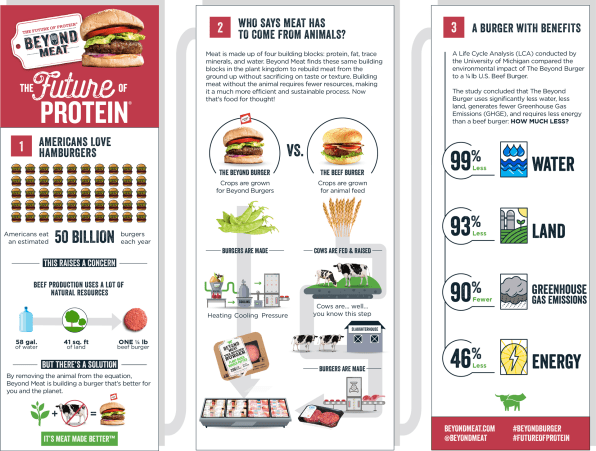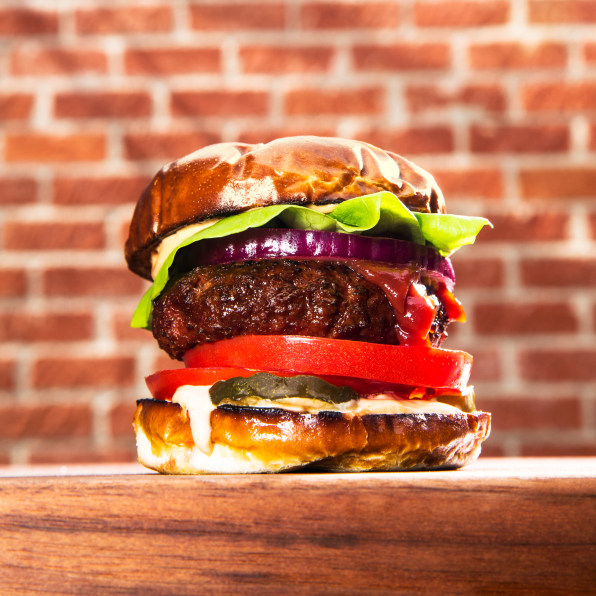We’ve all heard about the benefits of plant-based meat alternatives: reduced cholesterol, less impact on the land, animal-friendly, etc. But in terms of its reportedly environmentally friendly practices, how exactly does it measure up to traditional meat? Beyond Meat, makers of non-GMO meat-free burgers, sausage and chicken strips, that discovered its quite substantial.
The food company commissioned a study with the Center for Sustainable Systems at the University of Michigan to conduct a “cradle-to-distribution” life cycle assessment of its best-selling burger, made with pea protein, canola oil, coconut oil, and beat juice extract. Researchers analyzed greenhouse gas emissions, energy use, water consumed, land use, and even packaging, then compared it to that of an uncooked quarter pounder delivered to retail outlets. The study then underwent a third-party review process from outside scholars, states the report.

A spokesman for the brand explained that, by this assessment, Americans switching from beef to plant-based patties would be the equivalent of taking 35 million cars off the road–or saving enough electricity to power 6.8 million homes.
“From the start, Beyond Meat has been steadfast in our perspective that meat doesn’t have to come from a chicken, cow or pig,” said Beyond Meat’s founder and CEO, Ethan Brown, in a press statement. “We believe that we can build delicious, satiating meat directly from plants. Though the sustainability of building meat from plants makes intuitive sense, we commissioned the University of Michigan study to generate peer reviewed data and analysis regarding the positive impact consumers can have on climate and natural resources by shifting from beef to Beyond Burgers.”
The study’s release coincides with the UN Environment organization awarding Beyond Meat the 2018 Champion of the Earth honor on Wednesday. The company is being lauded as a sustainability trailblazer.

Americans are increasingly looking to meat substitutes such as Beyond Meat and the Impossible Burger. The plant-based “meat” industry saw sales top $670 million in the last year—up 24% from the year prior, reports the Plant Based Foods Association. The overall plant-based industry, meanwhile, saw $3.7 billion in sales.
For many consumers, the decision to lessen the dependence on meat is based on health and dietary concerns. But for a growing percentage, it’s shifted to environmental reasons. It takes an estimated 18,000 gallons of water to produce one pound of beef. (Peas, in comparison, take 740 gallons.) A recent poll found that 43% of consumers are more likely to try plant-based alternatives today than just five years ago.
As Brown told Fast Company earlier this summer, “More and more consumers are beginning to understand the biggest choice they make in terms of impact on the climate is protein.”
Bagikan Berita Ini















0 Response to "Meatless burgers vs. beef: How Beyond Meat's environmental impact stacks up"
Post a Comment